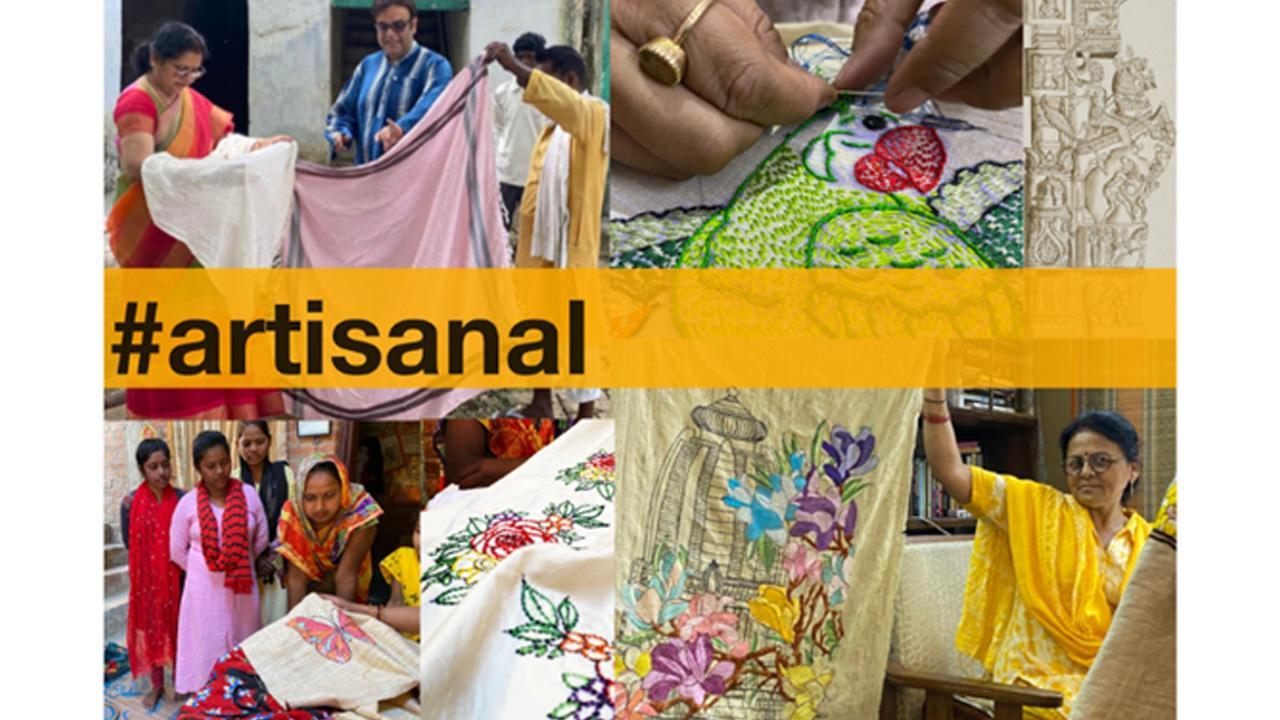India and its villages can be energised with local design that can translate as a source of local consumption and conscious consumers through e-commerce.

It’s an aspiration inside a village home to have premium mobile phones, have a wifi led television and even a washing machine counting on basic facilities.
ADVERTISEMENT
Village folks feel backward comparing themselves from the urban lifestyles leading to low motivation. Youtube might have reached through mobiles but the aspirations are much more . A guided approach has always been absent in making the village crowd understand the value of their own skill and heritage . Absence of pedagogy is evident. More important is the connection of these craft skills to selling to the right customer disintegrated. Many startups are working to get last mile services to these rural areas starting from cities, as the village inhabitants are considered to be downtrodden, marginalised and a potential market for selling multinational FMCG products. But it is not the reverse, connecting a village made product to an urban consumer due to issues of “product aggregation” and “product standardisation” inside villages.
Subsidisation by government schemes enforce village people to be in their comforted selves. In contrast, startup Vanvasi Project India in Uttar Pradesh started training the village women from zero skills into different types of hand based embroideries giving livelihood. The rarity in Vanvasi’s process is that the raw material is provided at the doorstep with time to time training. While women are also free to design some products too, adding the sensibilities of their micro environment. It is brought to the city through a hub and spoke supply chain. Earning respect and recognition for their skills is the crucial motivator for village women as they work inside their homes. The realisation of their own potential elevates their self worthiness. In contrast, of being subsidy takers for being vulnerable and Antyodaya, they feel confident and powerful.
Product Development takes a lot of time with circulation which are key problems for any government considering the top to down approach. Highlights the relevance of training of the trainer to sustain skills, are being worked on by Vanvasi Project India by means of continuous training and skill mapping across the most consistent women artisans inside villages in Uttar Pradesh. Home decor is an alien term inside Indian villages. They stitch their own furnishings and stuff required in homes. Every tiny village home has a stitching machine quietly kept in one corner of the place. Interestingly, most of the women find it interesting when there is a task that can involve it.
Market linkage has always been crucial from the time before India’s independence because the East India Company had trade ties with multiple textile businesses from India. It was spices and exquisite fabrics that made India the golden bird. With the overflow of cheap quality mass manufactured products, the market rules changed as prices became lower than ever.
But, today the situation is changing drastically on the consumer end for igniting the nationalistic appeal to adopt local goods. Startups like Vanvasi Project India who are functioning inside the villages will execute even better if the national leadership will align their policies to village based inclusive development.
( The author has shared hands-on experiences while working with village based women artisans with startup Vanvasi Project India in Uttar Pradesh. Rishabh Sachan is a research based architect, management advisor specialising in neuroscience marketing and works with creative businesses from the bottom of the pyramid. Had been the mentor of change for Atal Innovation Mission Niti Aayog and chairperson of Rishusdesign Foundation ) tweet : @SdesignRishu
#rishabhsachan #vanvasiprojectindia
 Subscribe today by clicking the link and stay updated with the latest news!" Click here!
Subscribe today by clicking the link and stay updated with the latest news!" Click here!








